detail profile lasalle ishii
Peran Yang Di Mainkan LaSalle Ishii
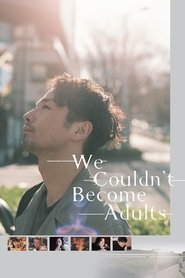 Prodded by a friend request a...
Prodded by a friend request a...We Couldn't Become Adults 2021
Prodded by a friend request, a feckless forty-something recalls his past relationships from the 90s onward, looking for his vanished hopes and dreams.
 Rai a frustrated student and parttime...
Rai a frustrated student and parttime...The Devil Wears Ju-Ni Hitoe Kimono 2020
Rai, a frustrated student and part-time labourer, is wandering home after setting up a museum exhibition on the classic novel "The Tale of Genji". There is a blinding flash of light and he finds himself mysteriously time-slipped into the Heian period, the setting for the famous novel. Armed with a pamphlet on the history of the period and a bottle of headache tablets he passes as an onmyoji (magical protector of the capital) and is hired by the emperor’s wife Nyogo Kokiden. Fearless and coldly analytical she plots to have her son take over the Emperor’s position. Rai is expected to help. This light-hearted historical fantasy is a treat for lovers of sumptuous kimono.
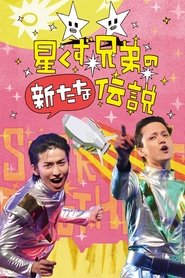 A sequel to the 1980 movie The...
A sequel to the 1980 movie The...The Brand New Legend of the Stardust Brothers 2018
A sequel to the 1980 movie The Legend of the Stardust Brothers. As well as being a rock musical comedy, it also borrows elements from other genres such as road movies, westerns, and meta fiction.
 Natsuko Kotani was born to be...
Natsuko Kotani was born to be...Desperate Sunflowers 2016
Natsuko Kotani was born to be a swindler. Meanwhile, Tetsuko Ishida is Natsuko’s distant relative. Unlike Natsuko, Tetsuko is an attorney with an upright disposition. Whenever Natsuko makes trouble, Tetsuko is called to solve her troubles. Believing that Natsuko is using her, Tetsuko, with her boring life, begins to change.
 Following the death of the unmarried...
Following the death of the unmarried...The Little House 2014
Following the death of the unmarried and childless Taki, Takeshi, a young relative of hers, discovers several pages of closely written lines in which the old lady has recorded her memories. This is how he learns the truth about her youth working as a housemaid and nanny for the Hirai family in a little house in Tokyo with a red gabled roof.
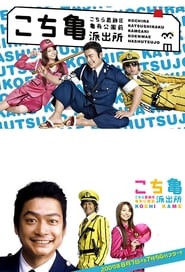 Police Officer Kankichi Ryotsu Shingo Katori...
Police Officer Kankichi Ryotsu Shingo Katori...KochiKame - The Movie: Save the Kachidoki Bridge! 2011
Police Officer Kankichi Ryotsu (Shingo Katori) is back at the Kameari Park Polic Box. Kankichi Ryotsu usually means to do well, but more often than not he ends up causing all kinds of trouble. Like on his way to work he away when he is asked to pay up by a shop owner or cheats an elementary school student. Ryotsu's co-workers Reiko Catherine Akimoto (Karina) and Keiichi Nagakawa (Mokomichi Hayami) have had about all they can take from Kankichi and his boss Ohara (Masato Ibu) is constantly berating him.
 Ginkos younger brother Tetsuro a failed...
Ginkos younger brother Tetsuro a failed...About Her Brother 2010
Ginko's younger brother Tetsuro, a failed comedian, is the oddball of the family. Embarrassing, loud and plain inappropriate at times causes Ginko to disown him. The two reunite when she discovers Tetsuro is terminally ill. Tetsuro’s impending death marks the beginning of love and toleration.
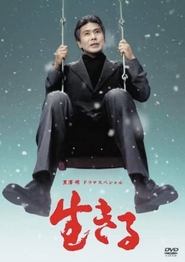 In a PostWar Tokyo when the...
In a PostWar Tokyo when the...Ikiru 2007
In a Post-War Tokyo, when the bureaucratic chief of department of the City Hall Kanji Watanabe finds that he has a terminal cancer, he decides to intensively live his last months of life. While dying, he finds the meaning of life, and fights for the construction of a playground in a poor zone of the city and the legacy of his existence.
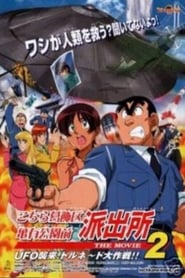 The movie starts off with Ryotsu...
The movie starts off with Ryotsu...KochiKame the Movie 2: UFO Attack! The Great Tornado Strategy!! 2003
The movie starts off with Ryotsu (with Honda as his patsy) hatching another crackpot scam with a fake UFO sighting (via fake crop circles and a wire-hanging UFO). But the plan fails per usual, with the Kameari Park Police Box which results in Ohara punishes Ryotsu by subtracting him from the station's group vacation to Hawaii the following day.
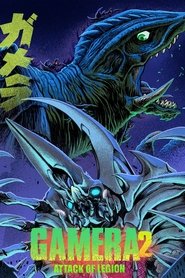 A strange meteor lands in Japan...
A strange meteor lands in Japan...Gamera 2: Attack of Legion 1996
A strange meteor lands in Japan and unleashes hundreds of insect-like "Legion" creatures bent on colonizing the Earth. When the military fails to control the situation, Gamera shows up to deal with the ever-evolving space adversary. However the battle may result in Gamera losing his bond with both Asagi and humanity.
 The life of a urban planning...
The life of a urban planning...Some Kinda Love 1996
The life of a urban planning official and that of an old fellow student, now project developer, are turned upside down by a chance encounter with a beauty obsessed by UFOs.
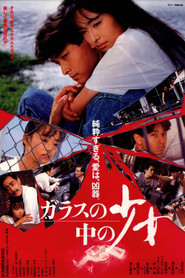 A girl from a wealthy family...
A girl from a wealthy family...The Girl in Glass 1988
A girl from a wealthy family falls in love with a working-class boy.
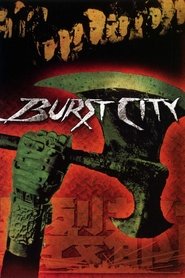 Set in a barren futuristic Tokyo...
Set in a barren futuristic Tokyo...Burst City 1982
Set in a barren, futuristic Tokyo of highways and wastelands, a rowdy group of punk bands and their fans gather to protest slow, boring, Japanese living.

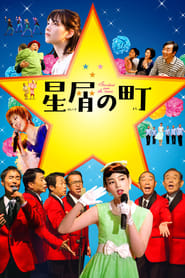 Story of the struggling chorus group...
Story of the struggling chorus group...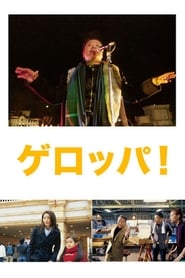 A James Brown fanatic gangster decided...
A James Brown fanatic gangster decided... Officer Ryotsu is ordered to team...
Officer Ryotsu is ordered to team...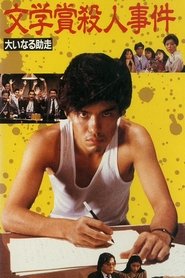 A young doujinshi writer doesnt win...
A young doujinshi writer doesnt win...